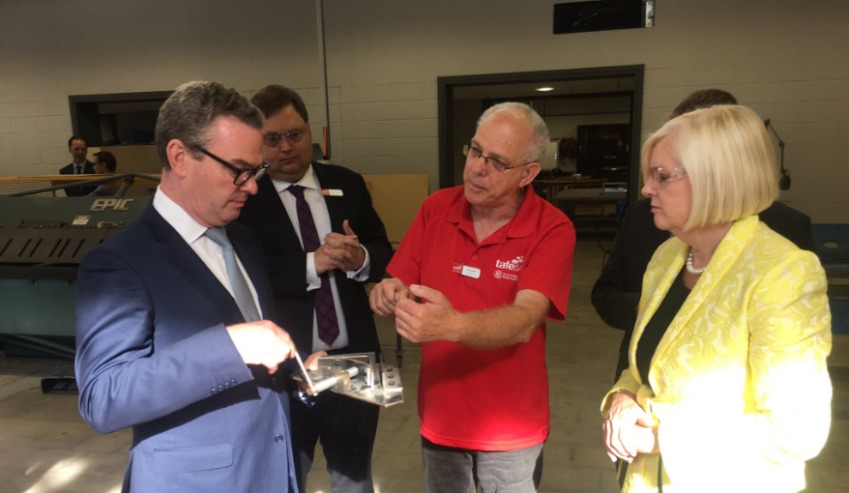With the first phase of the Naval Shipbuilding College due to commence next year, Canberra played host to the request for proposal industry briefing on Thursday.
Minister for Defence Industry Christopher Pyne welcomed the Naval Shipbuilding College, the first phase of which would be worth up to $25 million, saying it would be critical in preparing for the considerable workforce opportunities provided by the government’s continuous naval shipbuilding program.
"The critical thing is to establish a long-term sustainable industry with an Australian workforce," the minister said.
"To do that we need to grow the pool of available workers in key trades like metal-fabrication, welding and boiler-making. The interest in the briefing is particularly heartening, with more than 70 attendees from across the country."
The briefing was broadcast live across Australia to registered participants.
Minister Pyne confirmed officials from the Department of Defence, as well as the Department of Education and Training, met with a range of companies interested in providing for the Naval Shipbuilding College.
The minister said while the Naval Shipbuilding College will be headquartered at Adelaide, it would provide opportunities for education and training providers across Australia, under a hub and spoke model.
“The Naval Shipbuilding College will be truly national in scope. It will be complementary to, rather than competitive with existing institutions," Minister Pyne said.
The Naval Shipbuilding College will commence operations on 1 January 2018.
Further details regarding the Naval Shipbuilding College request for proposal can be obtained from the AusTender website: www.tender.gov.au.
The government's current projected timeline for the college is as follows:
Phase 1:
The first phase of the Naval Shipbuilding College, commencing in early 2018, will build capacity and annual throughput at existing education and training facilities around Australia, with the college headquarters at Osborne providing the central hub for managing implementation and collaboration between stakeholders, along with delivery of naval shipbuilding career awareness programs.
The focus will be on increasing key entry-level trade qualifications, reflecting the greatest demand expected in early years of the construction projects for trade qualified workers in structural and outfitting occupations.
Although key entry-level trade qualifications in Australia are typically provided through a traditional apprenticeship pathway, which involves an employer recruiting an apprentice and training them on the job, shipbuilders in SA are unlikely to recruit many apprentices before demand begins to ramp-up in the early 2020s, which raises the question of how apprentices in these trades will receive the on-the-job training required for their trade.
The government hopes the new college will address this by seeking to arrange for suitable group training organisations across Australia to recruit naval shipbuilding apprentices and hire them out to their member employers for on-the-job training, potentially with naval shipbuilders, suppliers and sustainment providers both in Australia and internationally. The successful tenderer implementing the first phase of the college will also collaborate with government and education and training providers to trial alternative approaches to the traditional Australian apprenticeship scheme, such as up-front formal training, effectively delaying the job training component.
Phase 2:
The second phase of the Naval Shipbuilding College will commence around 2020-21, increasing the capacity and throughput of students in key higher education qualifications (such as naval architecture and engineering) through universities. It will also develop and provide bridging programs for qualified workers from allied industries (such as automotive manufacturing and resources).
Phase 3:
The third phase of the Naval Shipbuilding College will commence around 2022-23. This will see the development of a purpose-built training facility located at the Osborne Naval Shipyard. Following thorough consultation with government and industry partners, including selected designers and builders for the three build programs, the college will offer a range of naval shipbuilding education and training, arrange placements for students and graduates and actively seek to recruit candidates from other geographic locations. This approach will ensure the numbers and types of skilled workers increase in line with industry demand.


